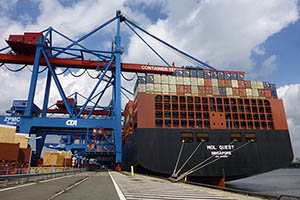Marine law
 The transport of goods by sea is strongly influenced by international law. Marine law comprises the law of the sea and the law of ships. It touches on both international and national law, public and private law.
The transport of goods by sea is strongly influenced by international law. Marine law comprises the law of the sea and the law of ships. It touches on both international and national law, public and private law.
When it comes under private law, it can also be commercial law and civil law. Finally, it may include elements of criminal and labor law, hence the large number of international maritime conventions.
Several international agreements have been concluded in an attempt to unify the rules governing contracts of carriage by sea. At the beginning of the 20th century, the international community realized that unifying maritime law would contribute to the legal stability of international trade relations.
It is fair to make reference here to the two main internationally recognized regulatory bases for marine transport:
- The Brussels Convention: on 25 August 1924, a convention on the unification of certain rules relating to contracts of carriage, was adopted in Brussels.
- The Hamburg Rules: on 31 March 1978, a new convention on marine transport was signed in Hamburg. This convention, more commonly known as the Hamburg Rules, came into force on 1 November 1992, introducing major changes to the legal regime governing the carriage of goods by sea.
- The Rotterdam Rules: It is worth recalling here the reasons behind the adoption in 2008 of a new convention commonly referred to as the "Rotterdam Rules", whose main objective is to simplify the legal framework for the international carriage of goods by sea. The Convention establishes a uniform, modern legal regime governing the rights and obligations of shippers, carriers and consignees under a door-to-door contract of carriage involving an international sea leg. It, therefore, provides a modern alternative to earlier conventions on the international carriage of goods by sea.
"The Rotterdam Rules provide a legal framework which takes account of the many technological and commercial developments in marine transport since the adoption of these conventions, including the development of containerization, door-to-door carriage under a single contract and the development of electronic transport documents" (1).
(1) United Nations Commission on International Trade Law, Rotterdam Rules, New York, 2008.